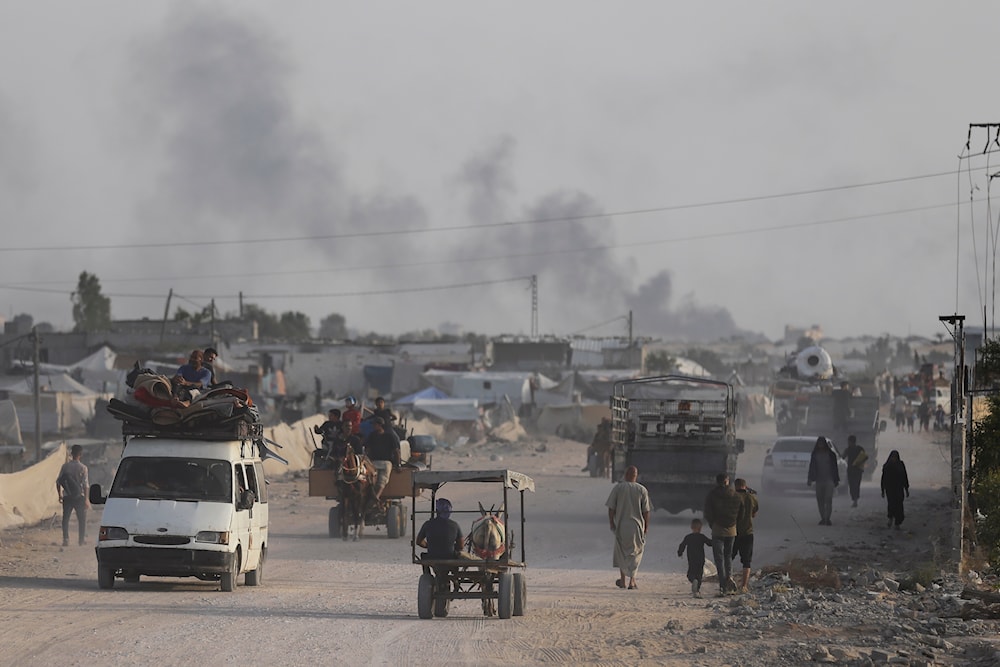120 million people forcibly displaced around world as of May, UN says
The UN Refugee Agency (UNHCR) reveals that the number of forcibly displaced people around the world has hit 120 million in 2023, hitting a 12-year high.
-

Palestinians fleeing from the southern Gaza city of Rafah during an Israeli ground and air offensive in the city, occupied Palestine, May 28, 2024. (AP)
Forced displacement has seen a notable increase in 2023-mid 2024, surging at 120 million worldwide by May, the UN Refugee Agency (UNHCR) said Friday.
This marks the 12th consecutive annual increase in displacement due to escalating wars and humanitarian crises, as many of them are ravaging the homelands of tens of millions of people and forcing them to seek refuge elsewhere.
A significant contributor to the rising numbers is the devastating war in Sudan, which has left 10.8 million Sudanese uprooted by the end of 2023.
Additionally, vicious infighting in the Democratic Republic of the Congo and Myanmar caused millions to be internally displaced last year.
75% of Gazans forcibly displaced in seven months
The war on Gaza has added a significant 1.7 million people to the tally, as within only seven months, 75% of the population was forcibly displaced by the catastrophic violence inflicted by the Israeli occupation upon the innocent civilians of the blockaded territory.
Meanwhile, Syria continues to represent the world’s largest displacement crisis, with 13.8 million forcibly displaced both within and outside the country after the horrific global war waged on Syria for over a decade.
"Behind these stark and rising numbers lie countless human tragedies. That suffering must galvanize the international community to act urgently to tackle the root causes of forced displacement," said Filippo Grandi, the UN High Commissioner for Refugees.
Grandi emphasized the necessity of respecting basic laws of war and international law in ongoing wars. He warned that without improved cooperation and concerted efforts to address conflict, human rights violations, and the climate crisis, displacement figures will continue to rise, resulting in fresh misery and costly humanitarian responses.
Internal displacement
Internal displacement brought a hefty weight to the displacement crisis, with the Internal Displacement Monitoring Centre saying the number has risen to 68.3 million, an increase of a stark 50% over the past five years.
This was also accompanied by a rise in the number of refugees, with the number of refugees reaching a whopping 43.4 million. That only includes those under the mandates of the UNHCR and UNRWA.
Adding to the devastation is the nature of the regions where the wars take place, as the overwhelming majority of refugees, namely 75%, are residing in low- and middle-income nations that collectively produce less than 20% of the world's income, with the majority of displaced peoples seeking refuge in neighboring countries.
The report also highlighted that 2023 saw more than five million internally displaced people and one million refugees return to their homes. Resettlement arrivals also saw an increase, reaching almost 160,000 last year.
"Refugees – and the communities hosting them – need solidarity and a helping hand. They can and do contribute to societies when they are included," Grandi said, highlighting Kenya as a leader in refugee inclusion. He stressed that solutions are possible but require real commitment.

 3 Min Read
3 Min Read








